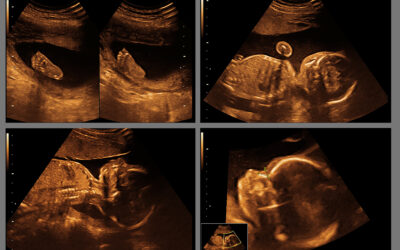Key Points
- The UPA treats children born through surrogacy as second-class, denying them the same safety checks—like background checks and home studies—required for adopted children placed with unrelated adults in non-surrogacy contexts.
- The UPA creates a system that carves out special treatment of adults using surrogacy that bypasses most of the critical screening factors for awarding custody in Title 23, and the Adoption and Safe Families Act.
- The UPA legalizes genetic surrogacy for profit, unlike current law, which limits surrogates using their own eggs to expense-only payments. Incentivizing the separation of a mother and her baby is not ethical and will lead to more coerced separations.
- This bill exploits both women and children, treating them as commodities to be bought rather than humans with inherent dignity.
- The UPA allows for paid surrogacy arrangements using natural conception (paid intercourse for pregnancy).
SUMMARY
House Bill 350 redefines parentage to be established based on intent rather than on biology. While attempting to streamline the current surrogacy process, HB 350 denies protections to children conceived via surrogacy, and it expands gestational and genetic surrogacy for commercial purposes. The Uniform Parentage Act even allows for paid surrogacy arrangements using natural conception (i.e., paid intercourse for pregnancy). See Section 9823(c).
Status Quo on Surrogacy in Pennsylvania:
Currently, case law and judicial oversight determine how surrogacy operates in Pennsylvania. Gestational surrogacy (where a surrogate is impregnated using a donor egg unrelated to her) and genetic surrogacy (where a surrogate mother using her own egg is impregnated) are treated differently.
In cases of gestational surrogacy, which is the most common, a couple or individual who intend to be the parents of the baby they contracted via surrogacy will submit an order to a judge and ask to become the baby’s legal parents and to be placed on the baby’s birth certificate in place of the surrogate mother. Currently, judges in Pennsylvania can approve this parentage request and as part of the process, they can call a hearing to further examine the couple as an important layer of protection for babies created through surrogacy. Additionally, surrogacy lawyers in Pennsylvania encourage intended parents, especially in cases where one or both of the individuals is not related to the baby, to go through a confirmatory adoption to ensure parentage is clearly established. This ensures another level of protection for children created through surrogacy, as adoptions require crucial safety checks like home visits and background checks.
In cases of genetic surrogacy, the baby will be biologically related to the surrogate mother and parentage cannot be established before the baby is born. The couple or individual who want to obtain this child must formally adopt the baby after the baby is born. Women who go through genetic surrogacy are also currently prohibited from being paid for anything besides her expenses, based on the same laws that prohibit parents from putting their child up for adoption for profit.
What Does HB 350 Claim to Fix?
Proponents of HB 350 claim that, given the lack of legislation on surrogacy and the fact that judges can use individual discretion to hold hearings to establish parentage, we need uniformity for our surrogacy laws.
What Would HB 350 Actually Do?
HB 350’s “solution” is to automatically establish parentage on the basis of stated intent and does not require judicial oversight, which at least provided some protections to children conceived through surrogacy. This bill goes in the wrong direction, and instead of uniformly creating higher standards to protect the child, it treats children born through surrogacy as second-class, denying them the same safety checks—like background checks and home studies—required for adopted children placed with unrelated adults in non-surrogacy contexts. We must ensure that children have safe homes and HB 350 sacrifices children’s need for safe, loving homes in the name of ease and expediency for adults. Statistically the most dangerous person in a child’s life is a non-biologically related adult in the home. This certainly does not mean that is true for every non-biologically related adult in the home – however, it is why we have such stringent and thorough adoption laws.
In cases of genetic surrogacy where the surrogate is using her own egg and is therefore biologically related to the child, a court order would still be required, but unlike the status quo, the UPA would allow parentage to be established prior to birth and without an adoption. The UPA allows genetic surrogates to be paid for profit, above and beyond covering their expenses. See Section 9823(c) line 21-25. This is a radical departure from the status quo and would, in effect, allow women to sell their own biological children through surrogacy.
HB 350’s Post-conception validation for genetic surrogacy can be abused. Subchapter C Section 9824(b) says that with the agreement of all parties, the court may validate a genetic surrogacy agreement after assisted reproduction has occurred, as long as it is before the birth of the child. Under this bill, a woman could potentially undergo the necessary screenings, become pregnant via IUI (intrauterine insemination), and then “match” with the highest bidder before validating a contract with them. Currently, a pre-birth order is not allowed because the surrogate cannot terminate her parental rights until 72 hours after the child’s birth.
The Uniform Parentage Act even allows for paid surrogacy arrangements using natural conception (i.e., paid intercourse for pregnancy). Subchapter C Section 9823(c) allows for surrogacy contract (including a for-profit surrogacy contract) even if the child was conceived via intercourse instead of ART. “Unless the genetic surrogacy agreement provides otherwise, if the child was not conceived by assisted reproduction, the genetic surrogate is not entitled to any non-expense-related compensation paid for serving as a genetic surrogate.” By stipulating that “unless the genetic surrogacy agreement provides otherwise,” the bill permits paid intercourse for pregnancy.
TAKE ACTION
Take Action: Tell Your Legislators to Oppose the Uniform Parentage Act
Act Now
ARTICLES
Article: Bucks Independence (8/13/25, Cheryl Lynn Allen, Patience Sunne) Surrogacy bill puts children in harm’s way.
Article: HealthDay (7/29/25, Mundell). Surrogate moms without prior mental illness were 43% more likely to develop a mental illness for the first time compared to moms who conceived and carried their own baby. The study was published in JAMA Network Open.
Article: Broad & Liberty (6/17/25, Cheryl Lynn Allen) Pennsylvania must reject the Uniform Parentage Act to protect children’s rights.
Related Articles
Watching the Capitol: A Pro-Family Response to Governor Shapiro’s 2026 Budget Address
Each year, the Governor’s budget address sets the tone for the legislative battles ahead. This week, Governor Josh Shapiro delivered his proposed 2026–27 budget to a joint session of the General Assembly, outlining what he views as Pennsylvania’s priorities for the...
A New Generation of Leaders: Pregnancy Resource Centers, City on the Hill, and the Call to Stand
by City on the Hill alum Kaylynn Kilmer I have never felt more hopeless than when I found out my father had brain cancer. There was nothing that could have prepared me for that moment. I had been trained by Godly parents who had always ensured I had all I needed...
Pennsylvania’s 2024 Abortion Report: A Mixed Reality of Hope and Heartbreak
The PA Department of Health has released its 2024 Abortion Statistics report, and it presents a sobering mix of tragedy and triumph. For those committed to protecting life, this annual state report must remind us that the work ahead remains urgent. A Sign of Hope:...
How Youth Pastors Can Equip the Next Generation to Stand for Life
When a youth pastor recently asked me, “How can high school students get involved in the pro-life movement?” it stopped me in my tracks. It’s the kind of question that signals hope, because when pastors start helping students live out truth beyond the church walls,...
PA Lawmakers Pass 2025-26 State Budget
HARRISBURG, Pa. (Nov. 13, 2025) – Over four months past the June 30th deadline, the Pennsylvania Legislature has finally passed and Gov. Shapiro signed a state budget for the 2025-26 fiscal year. While the final deal avoids immediate tax hikes and includes some...
After Election Day: Our Hope Remains in God
By Kurt Weaver Every election season brings a wave of emotions - anticipation, excitement, anxiety, and sometimes disappointment. As followers of Jesus, we know that some of the candidates and causes we support will win, and others will lose. That reality can be hard...
Why “book banning” is a lie: parents must demand age-appropriate standards in schools
In communities across America, parents are shocked to see the sexually explicit content in the books and curricula being introduced into their children’s classrooms. Yet time and again, when those parents ask local school boards to adopt age-appropriate standards—...
Faithful Give 2025: A Joyful Opportunity to Multiply Your Impact
Faithful Give 2025: A Joyful Opportunity to Multiply Your Impact









